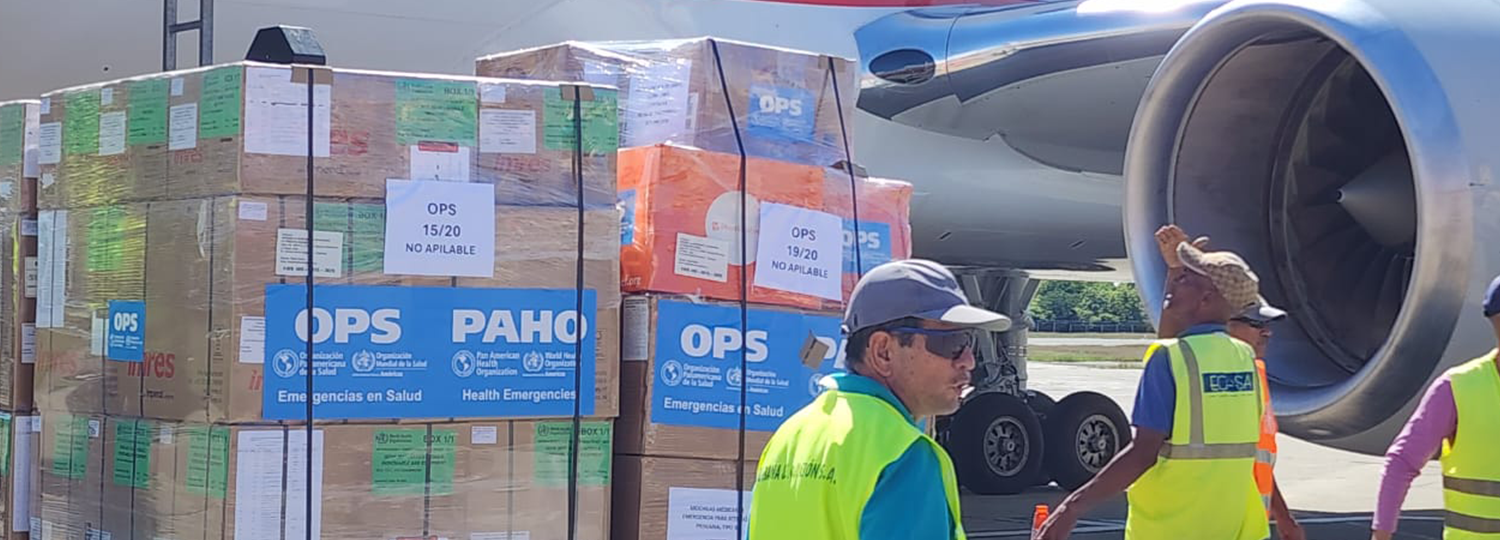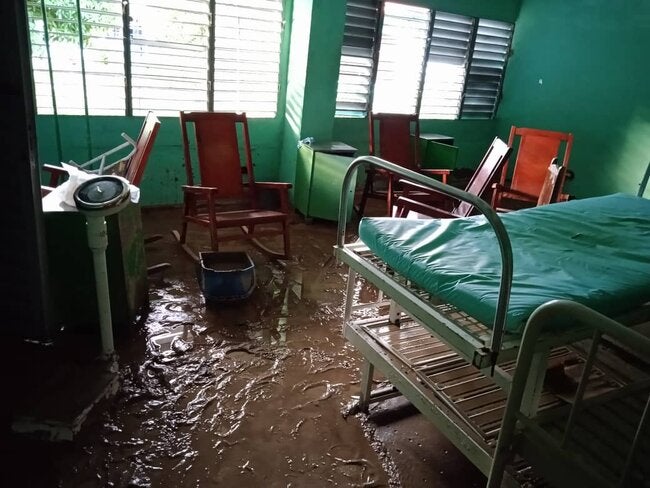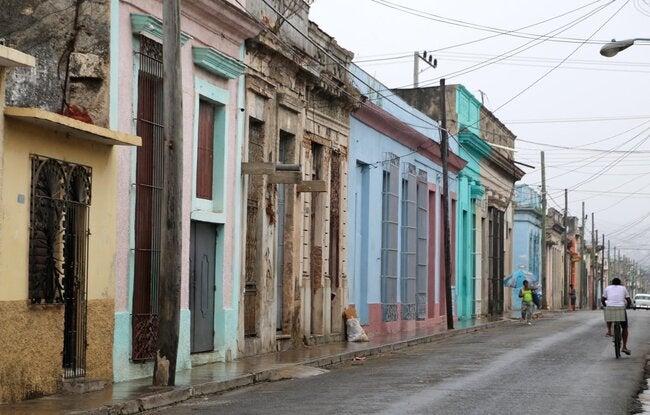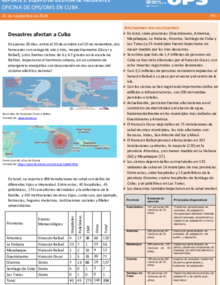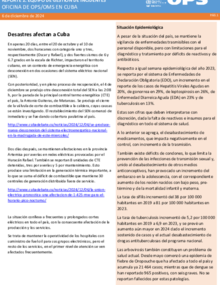A socio-economic crisis exacerbated by converging disasters
For several years now, Cuba has been enduring an economic crisis that has persistently worsened over time. Economic hurdles, inflationary pressures, medication and supply scarcities, and growing migration of healthcare personnel have strained the Cuban healthcare system and collectively impacted the population's wellbeing and health outcomes.
In this challenging context, Cuba is currently experiencing an unparalleled crisis due to converging disasters, an unprecedented energy emergency, and acute public health challenges. In less than a month, the island has been struck by a series of disasters, including two hurricanes (Oscar, Category 1, and Rafael, Category 3) and two earthquakes (magnitudes 5.9 and 6.8). These events have left a trail of destruction, extensive flooding, and disrupted essential services such as water and healthcare, further complicating the ongoing socioeconomic crisis.
Highlights
A total of 385 health facilities were reported with different types and intensity damage.
Seven Cuban provinces face severe water shortages, with Artemisa (83%) and Havana (80%) most affected, while power outages and infrastructure damage in Mayabeque, Guantánamo, and Granma exacerbate the crisis.
The recent consecutive disasters, amid the repeated disconnections of the national electrical system across the country, pose significant challenges for the emergency response and recovery efforts across the affected regions.
In the midst of ongoing Dengue and Oropouche epidemics throughout the country, the risk of communicable disease outbreaks remains high due to extended flooding, lack of access to potable water, and poor hygiene in temporary shelters for the evacuated population. Also, this situation increases the likelihood of outbreaks of digestive-borne diseases, respiratory infections, and other vector-borne diseases.
Although the health system has been able to maintain to some extent health services and epidemiological surveillance with existing resources and trained personnel, there is a shortage of reagents and laboratory supplies for diagnostic, antibiotics, and other drugs for treatment, as well as basic supplies for the functioning of health services.
Since late 2023, outbreaks of Oropouche (OROV) virus disease have been reported in several countries in South America and the Caribbean, including areas with no previous history of this disease. Up to December 6, 2024, 21.000 suspected cases of Oropouche have been reported in Cuba. On 19 September 2024, Cuba reported three cases of Guillain-Barré syndrome (GBS) linked to OROV.
The current outbreak highlights the need to strengthen epidemiological and entomological surveillance measures and to reinforce preventive measures in the population
PAHO's Response
PAHO's response operations are focused on ensuring the continuity of healthcare delivery to the population, primarily the most vulnerable communities, in support to national authorities and the Ministry of Health, and in close coordination with other United Nations (UN) agencies and the UN Office for the Coordination of Humanitarian Affairs (OCHA).
Thanks to the financial and operational support of Direct Relief, the European Union, and the United Nations Central Emergency Response Fund (CERF), and in coordination with Cuba's Ministry of Public Health’s Disaster Management Office, PAHO has dispatched over four tons of essential supplies, including medical and trauma care materials, personal protective equipment, fuel oil generators and other operational supplies to reference hospitals and other strategic health facilities to the regions most affected by the recent disasters.
To address the spread of Oropouche cases in the country, PAHO donated reagents and materials to support the molecular detection of the virus and facilitated the training of several Cuban laboratory professionals on whole genome sequencing, serological and molecular detection of Oropouche infection, and the production of essential reagents for detecting antibodies against this pathogen.
In September 2024, PAHO regional experts in virology, epidemiology, clinical management, entomology, and maternal and child health conducted a mission to Cuba to assess the current Oropouche fever situation, analyze the factors driving the ongoing outbreak, identify gaps, challenges, and opportunities for strengthening response and control efforts.

